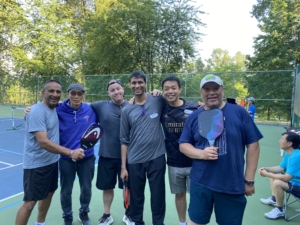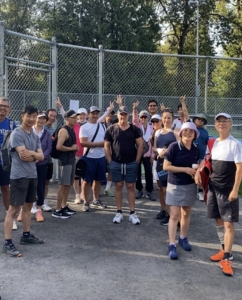Hello Ipoppers!
Time flies as much as a whiffle ball on a Pickleball court! Here comes the holiday season…while most of you migrated into community centers, gymnasiums or jetted down south, I took to month to treat my painful pickleball elbow, it’s feeling better, and with a managed “slow” return to play, it should be good for the new year. If you want to avoid this issue, check out my blog on the subject here. We’ve got some exciting news to share with all our fellow pickleball enthusiasts out there. Brace yourselves for the grand opening of the Inclusive Place of Pickleball (IPOP) Pop-Up in downtown Vancouver, BC! This temporary haven will feature 8-10 30X60 tournament-ready courts, a lounge area to chill, and a rinky-dink practice space. And that’s not all – there are plans to have a mini-pro shop to cater to all your pickleball needs. Stay tuned for the exciting announcement coming soon…
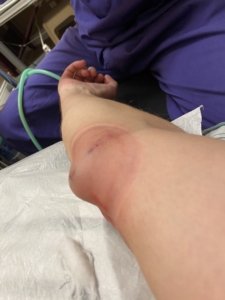
Treatment time for my pickleball elbow
In a fantastic collaboration with Pickleball BC, IPOP has submitted an application to the City of Burnaby to host the BC PROVINCIALS in Spring 2023. The tournament will be co-hosted with Pickleball BC and managed in collaboration with volunteers from pickleball groups in Burnaby and New Westminster.
Further solidifying Mayor Mike Hurley’s vision for Burnaby to be the Pickleball capital of BC. You might remember the Mayor cutting the 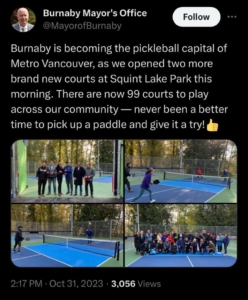 tape at the Squint Lake Pickleball courts’ official opening – an event that drew pickleball peeps from all around, as documented here.
tape at the Squint Lake Pickleball courts’ official opening – an event that drew pickleball peeps from all around, as documented here.
But that’s not all – we’re gearing up for a presence at The Wellness Show on February 4 & 5 at the Vancouver Convention Center. Make sure to mark your calendars and visit our booth (143A) to soak in the pickleball vibes. Pickleball BC will have a display court set up right beside us – an exciting opportunity to showcase our sport’s charm!
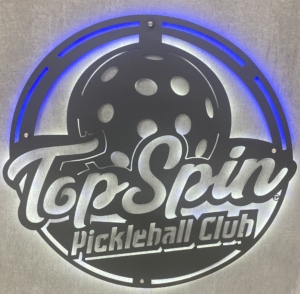 We recently had the pleasure of attending the grand opening of Top Spin Pickleball in Abbotsford, rubbing shoulders with legends like Brock, Doug, and even Steve Deakin!
We recently had the pleasure of attending the grand opening of Top Spin Pickleball in Abbotsford, rubbing shoulders with legends like Brock, Doug, and even Steve Deakin!
Our Learn to Play classes in New Westminster are a hit – once again, sold out! It’s heartening to witness the growing appetite for this awesome sport, and at IPOP, we’re thrilled to nurture this new wave of enthusiasts as they form their own vibrant community within our larger pickleball tribe. Check out our January schedule [link to the schedule] and join the fun! Click here to get more information 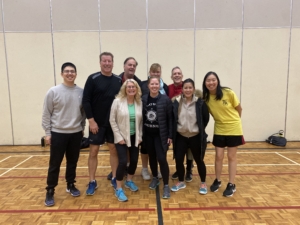
On a recent trip to LA, I heard that Matthew Perry loved Pickleball. Of course, I had thought that maybe, just maybe, I’d be running into him on the courts or perhaps at a meeting. We have much in common, especially our love of pickleball and recovery. Somehow, I think he is running around up on that big pickleball court in the sky! RIP kindred spirit. May you find the sun on the pickleball court in the sky.
The Keswick Park Sunday morning crew is braving the cold to hone their pickleball skills and drills. From lobs to volleys, serves to game positioning, they’re committed to becoming pickleball pros.
And last but certainly not least, our survey has garnered responses from over 500 pickleheads, providing invaluable insights into the local pickleball community’s hopes, dreams, and desires. If you haven’t already, please take a moment to fill out our survey here and share it with any fellow players who can help us on our quest.
Let’s continue to build a vibrant and inclusive pickleball community together! See you on the courts!



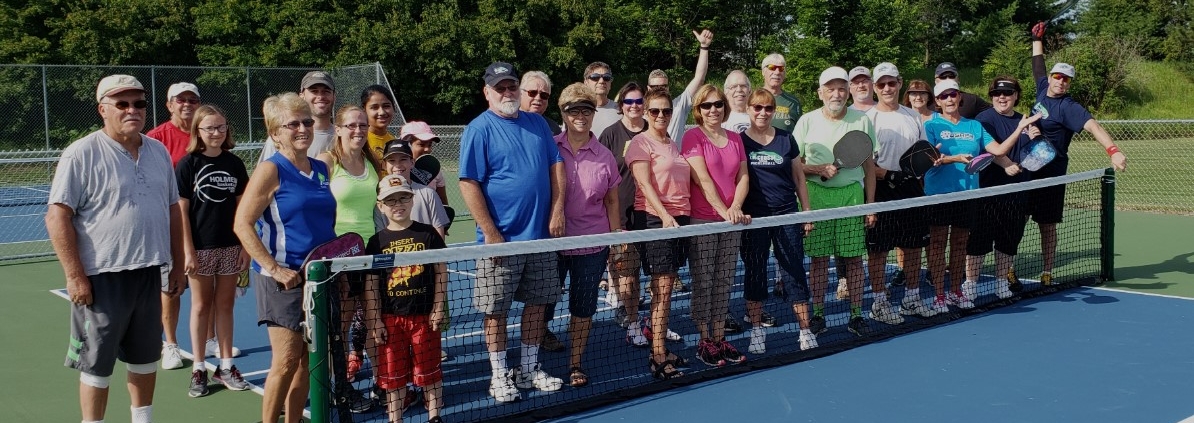 open commons
open commons 

